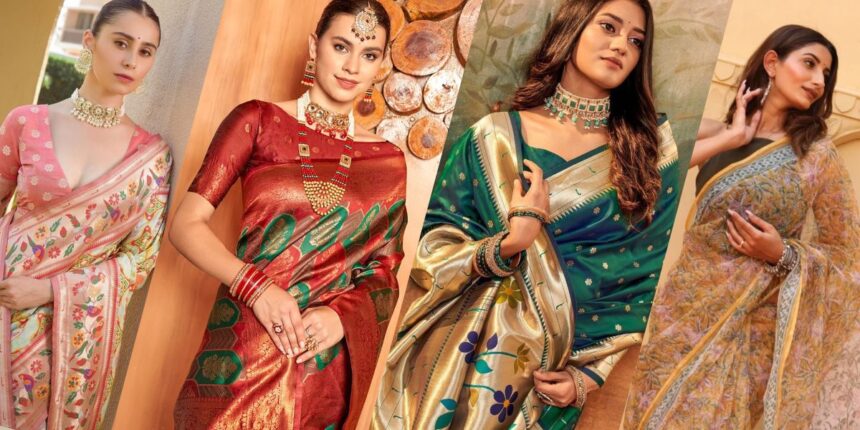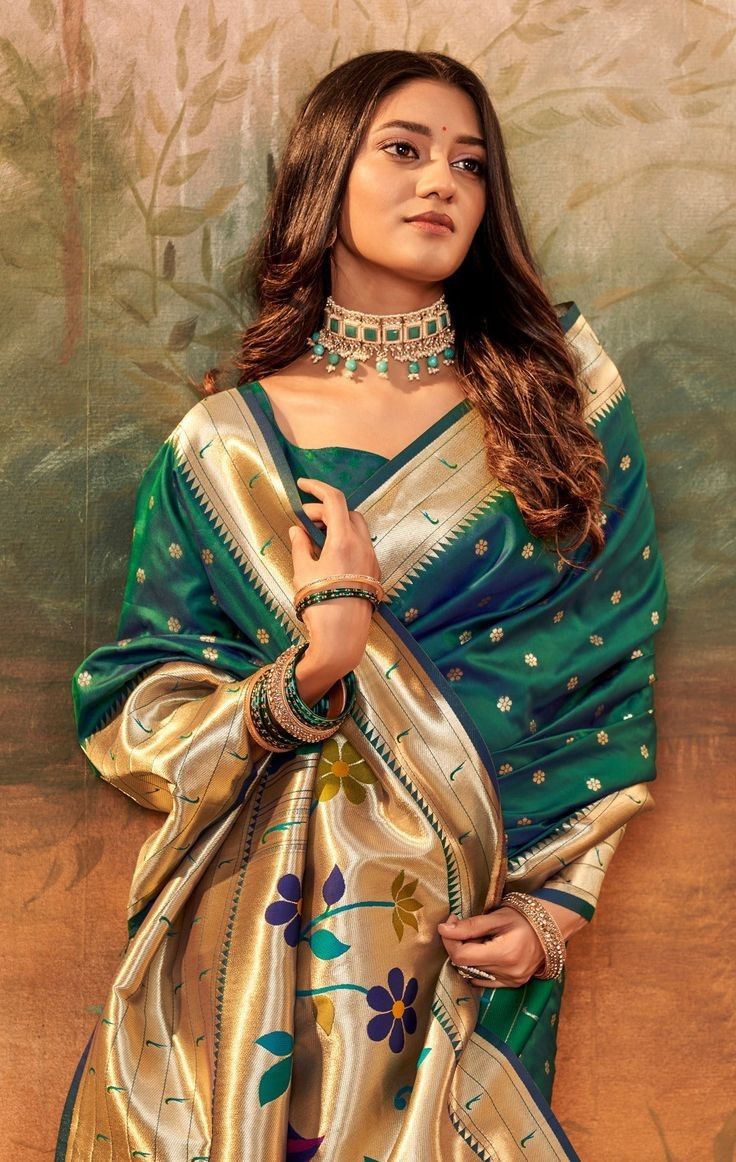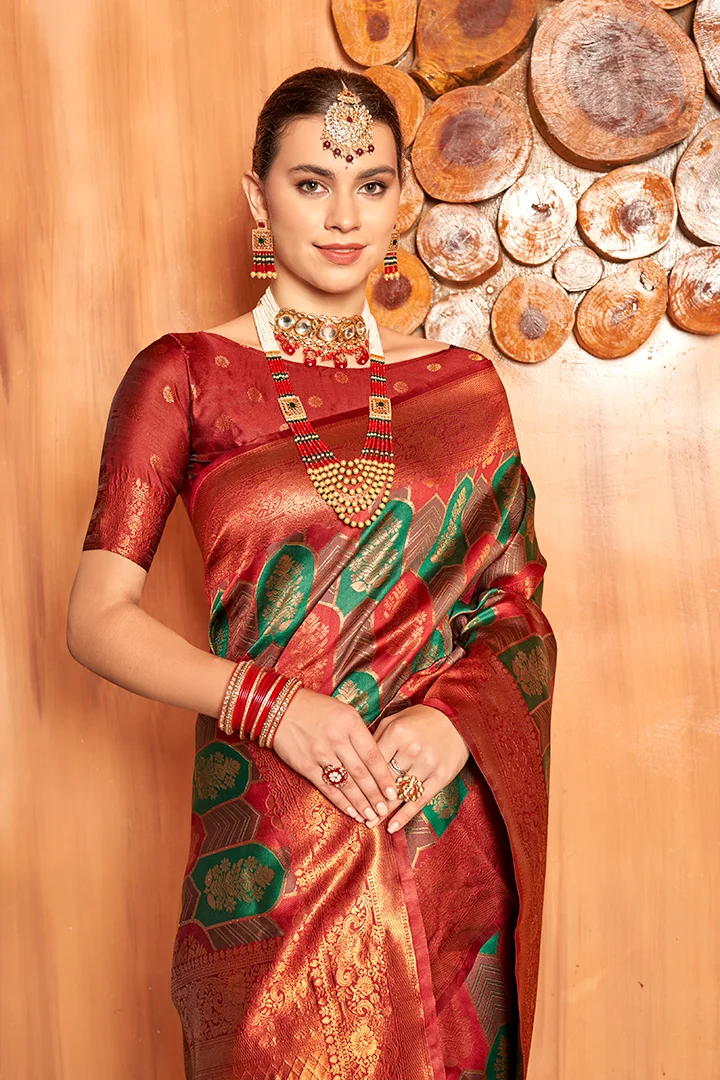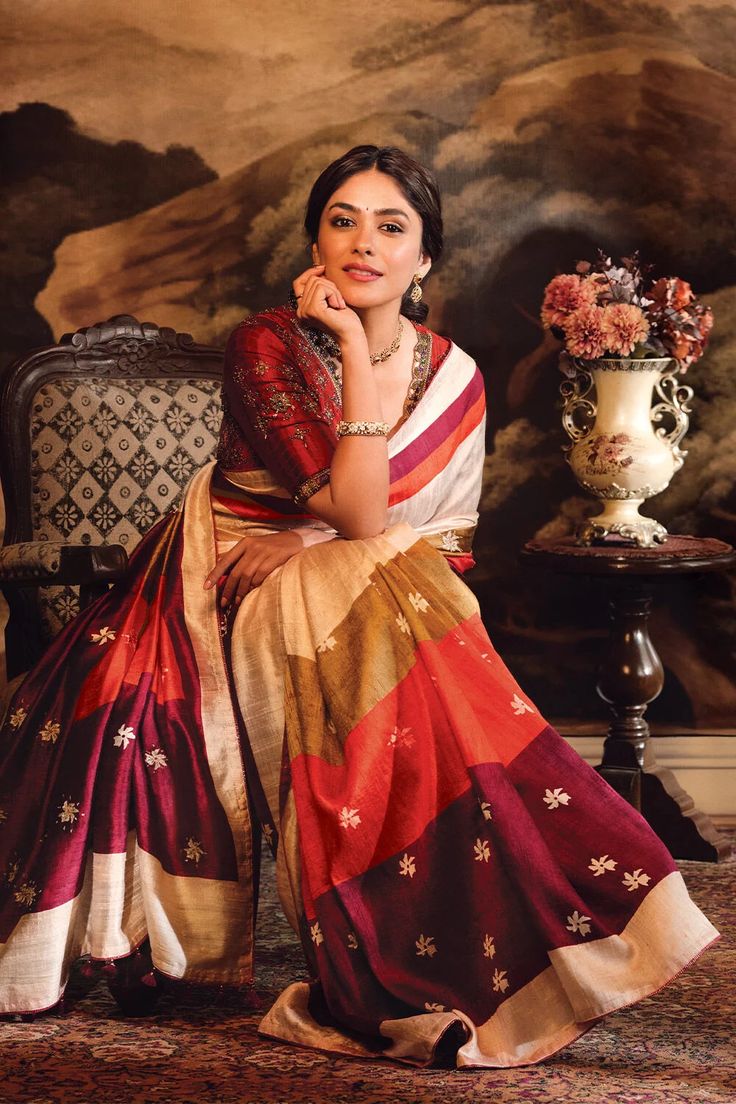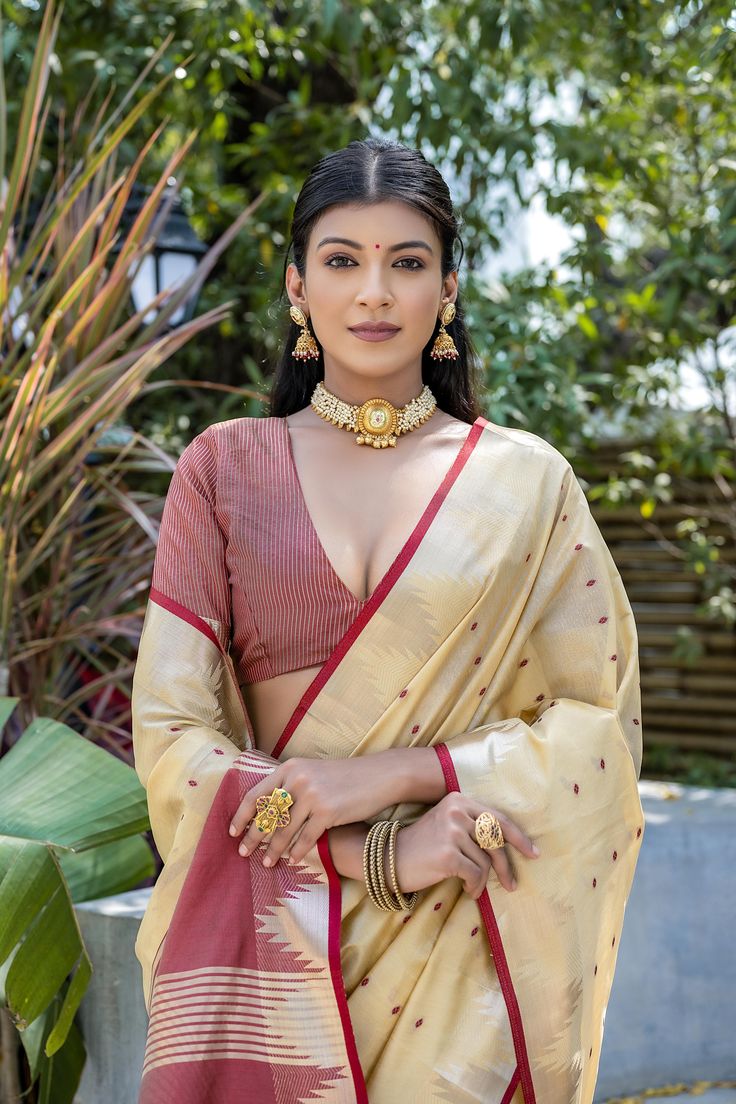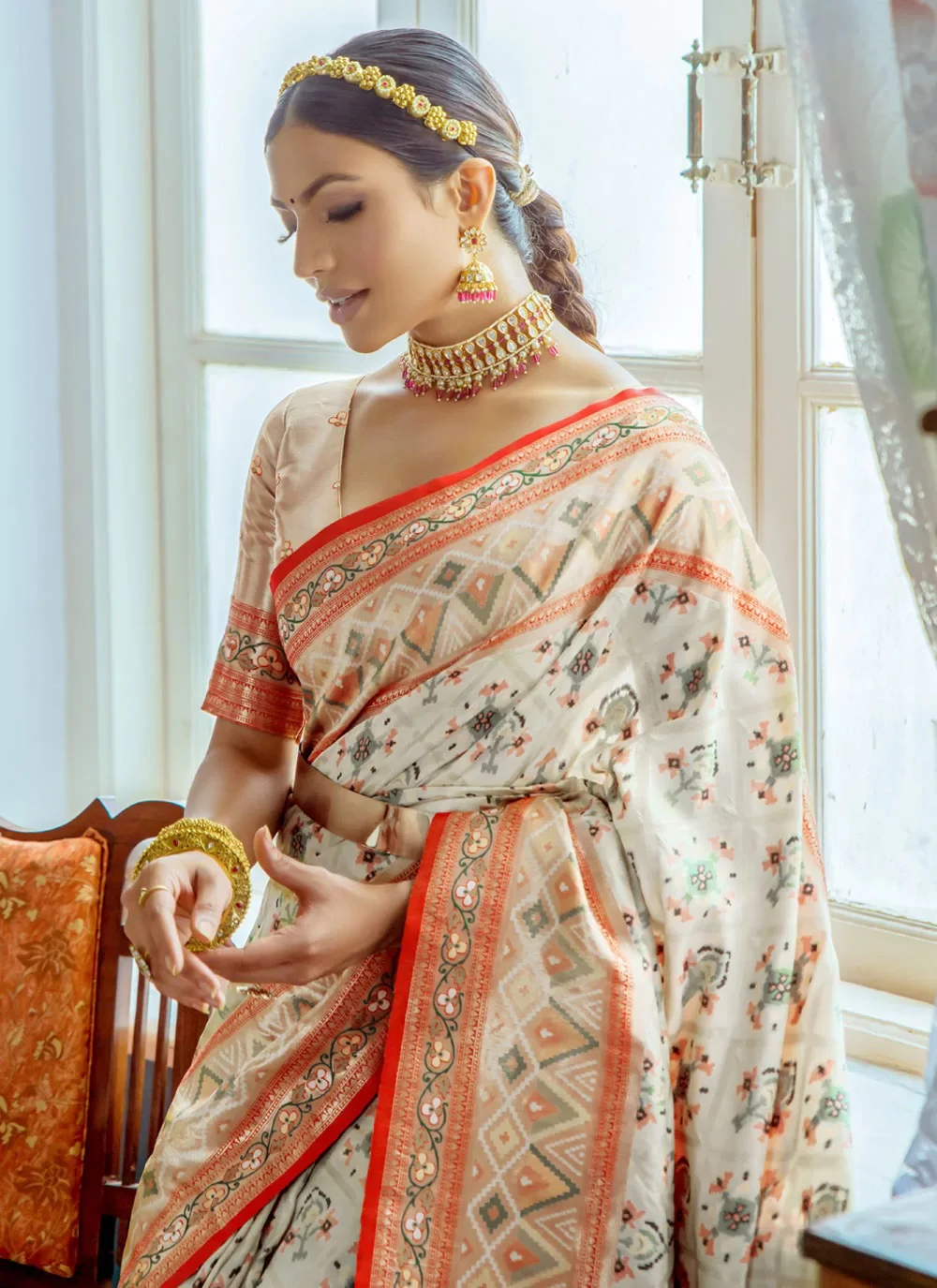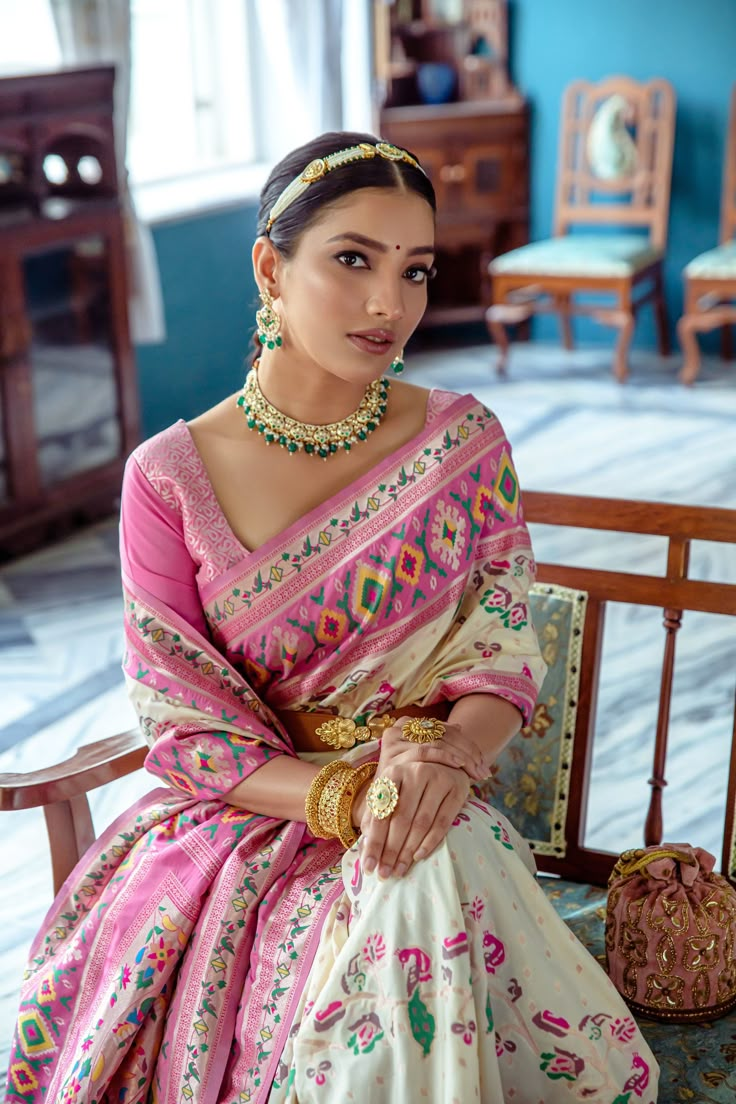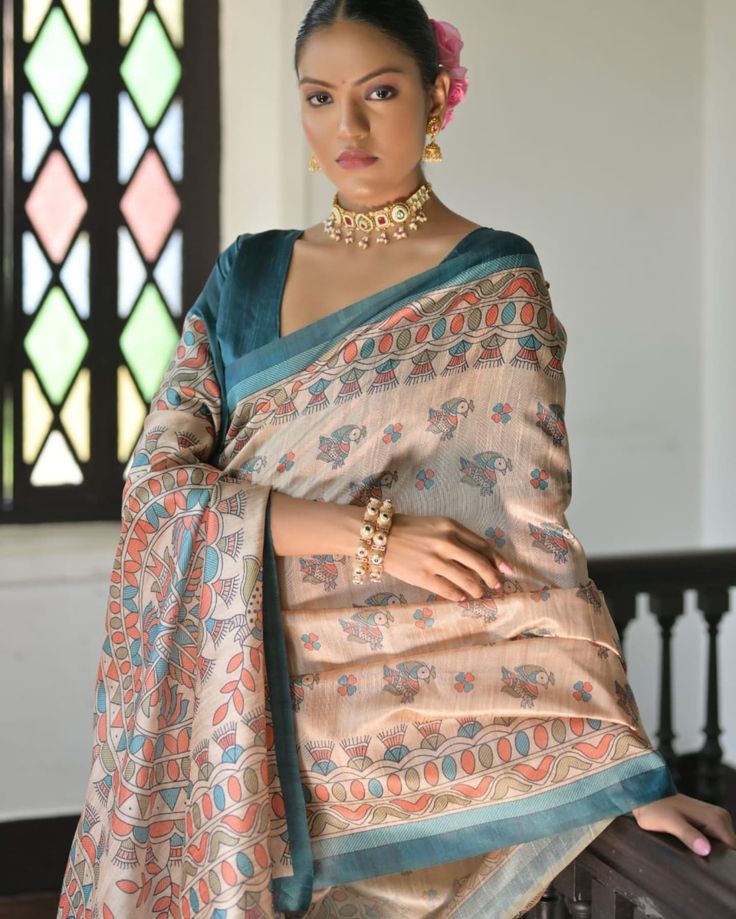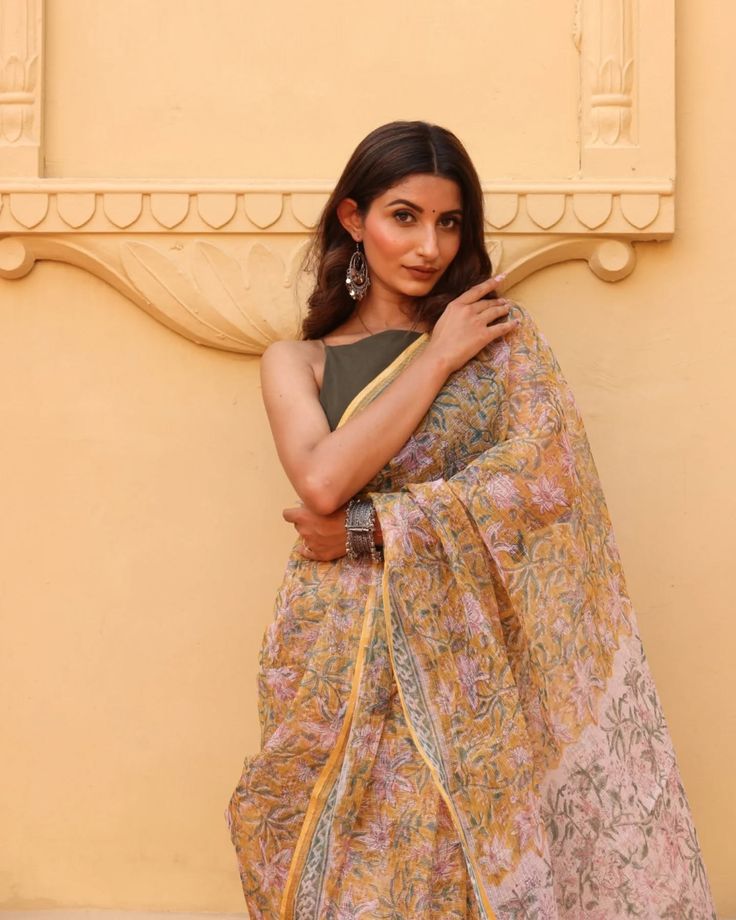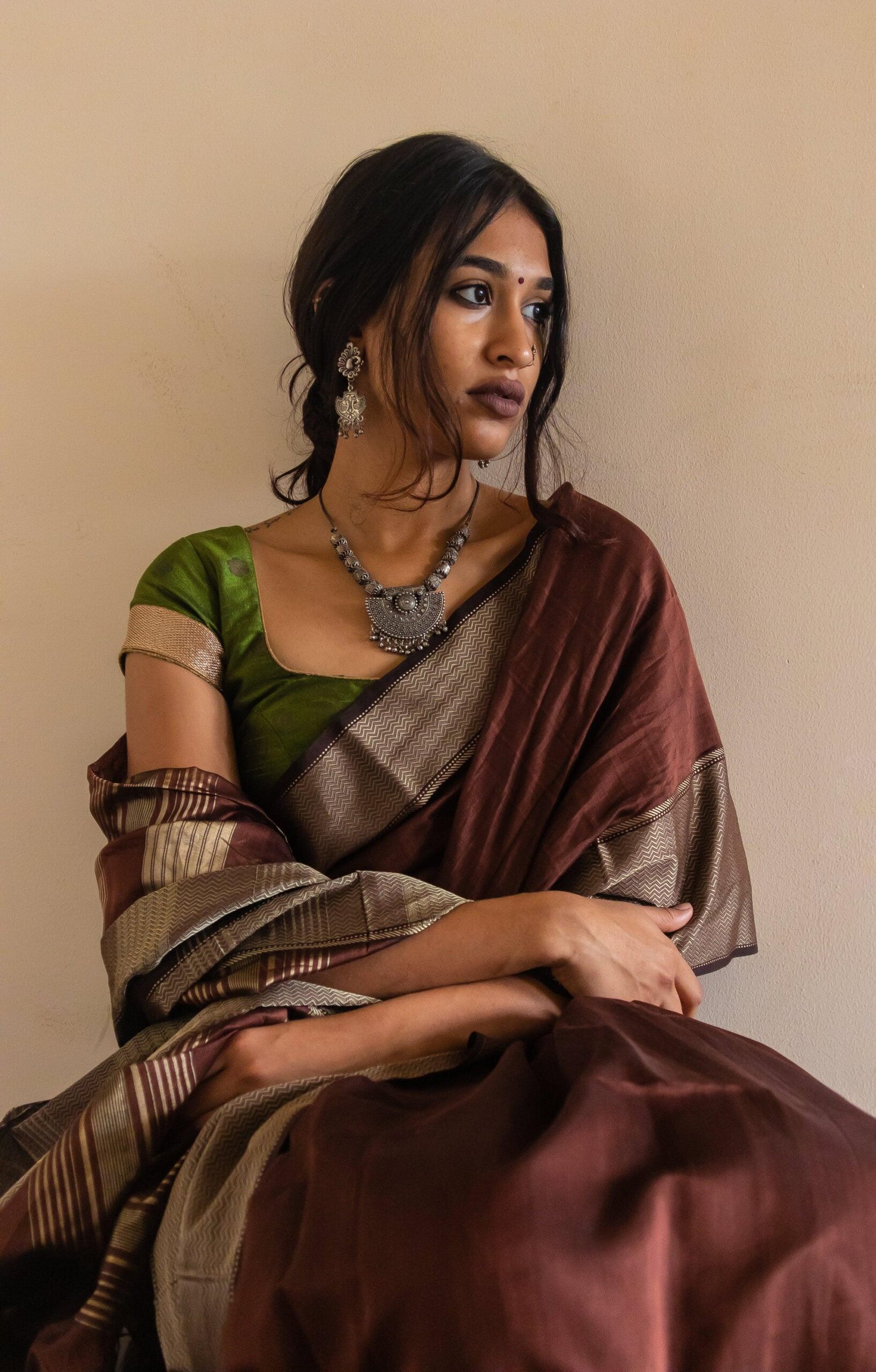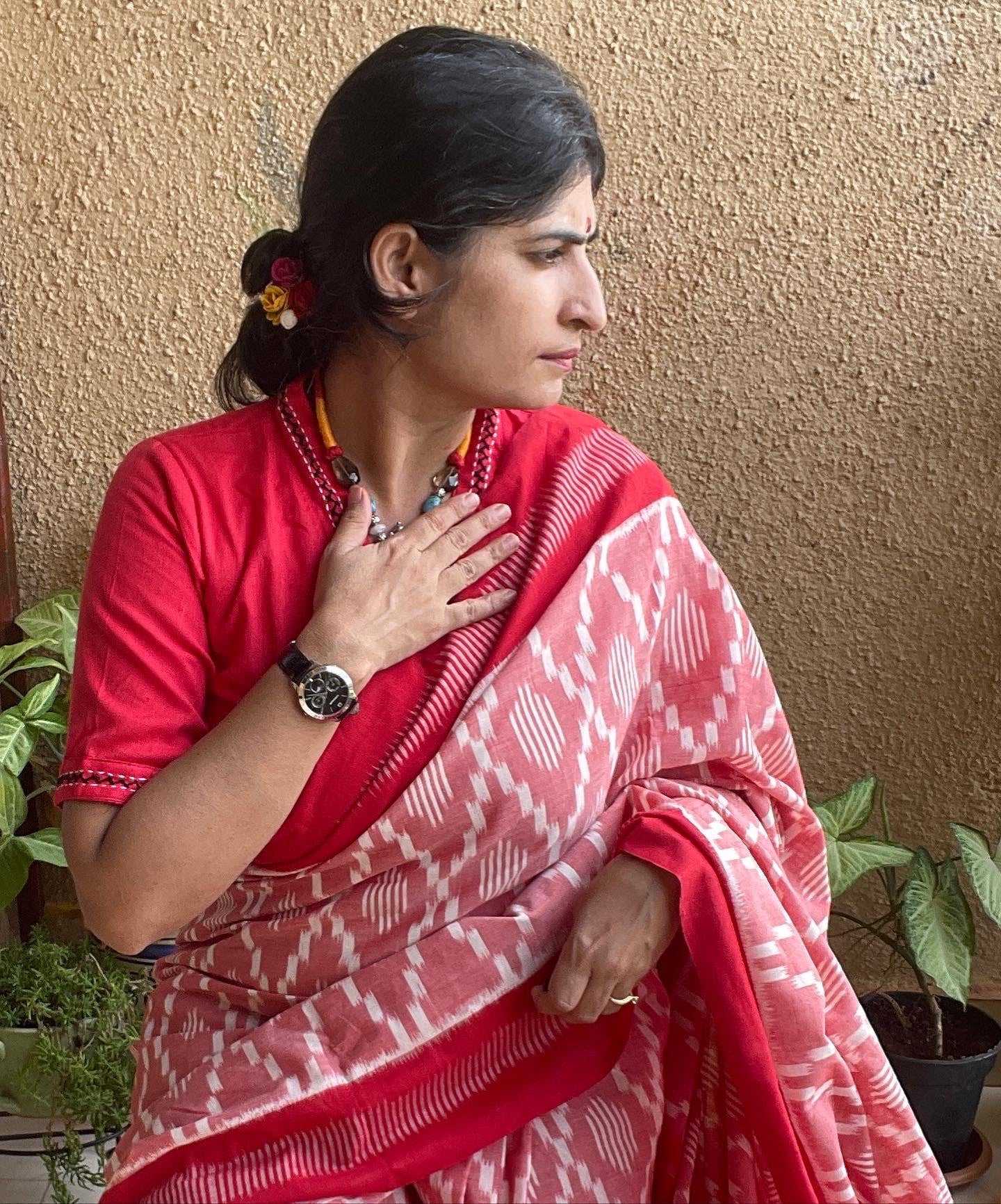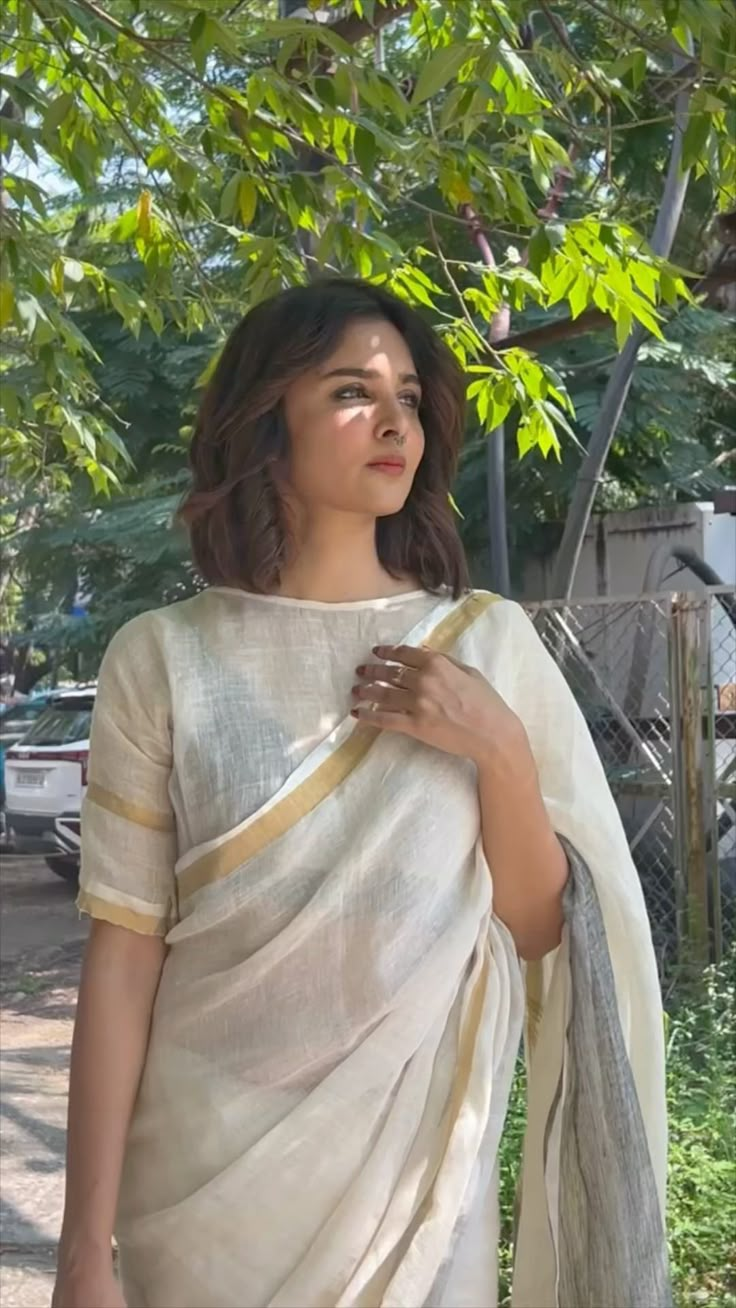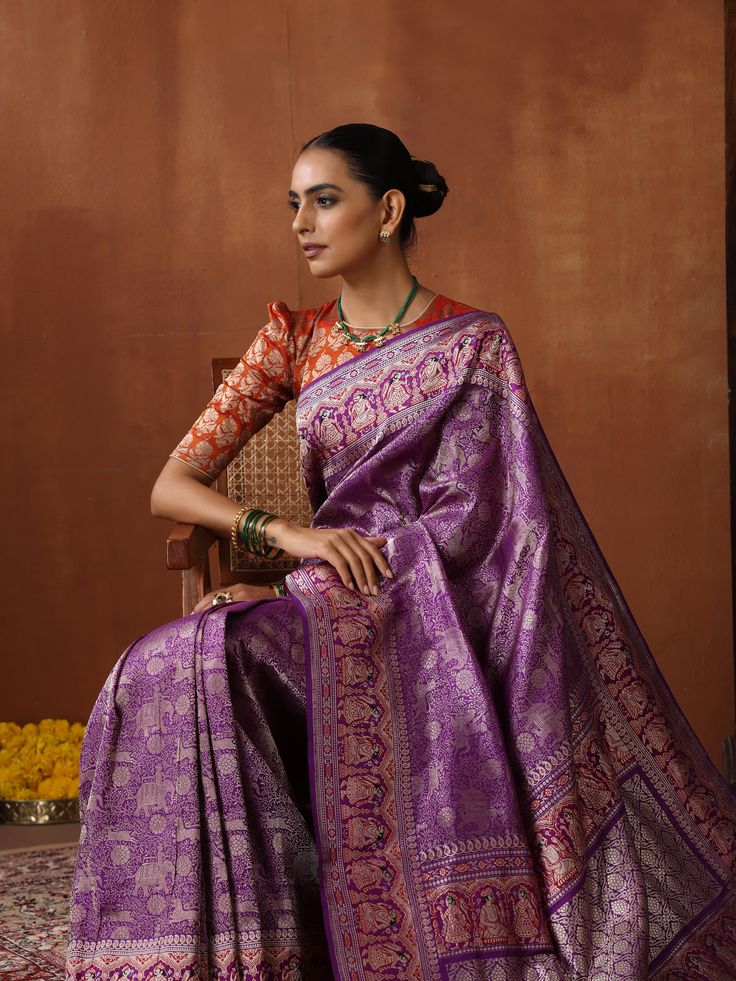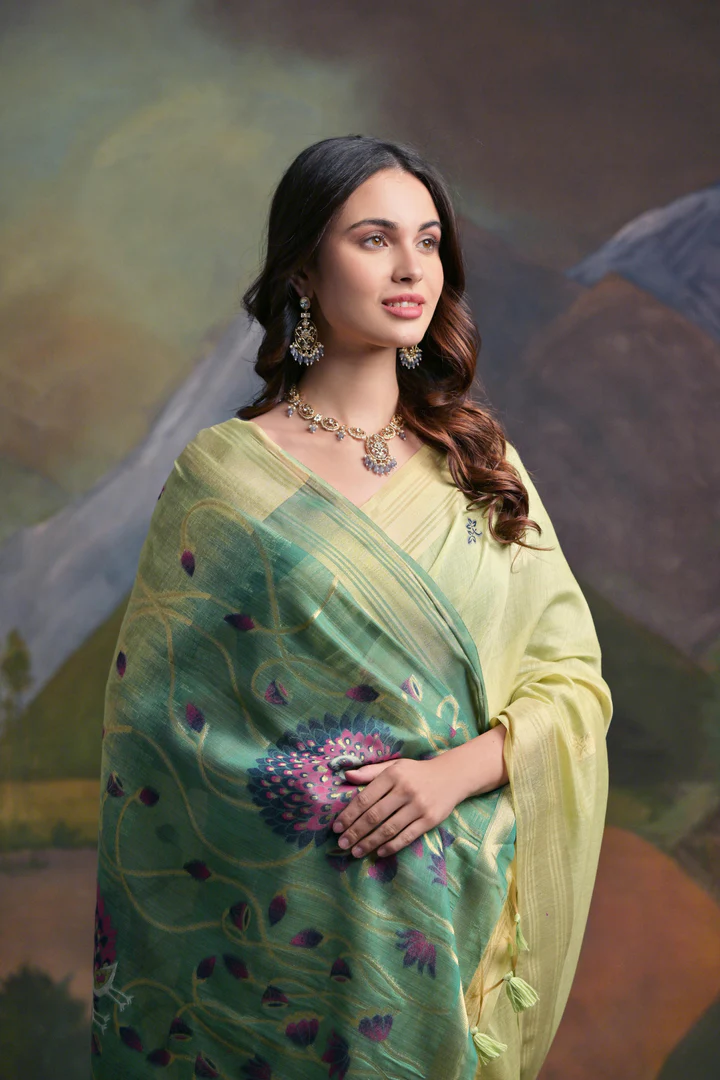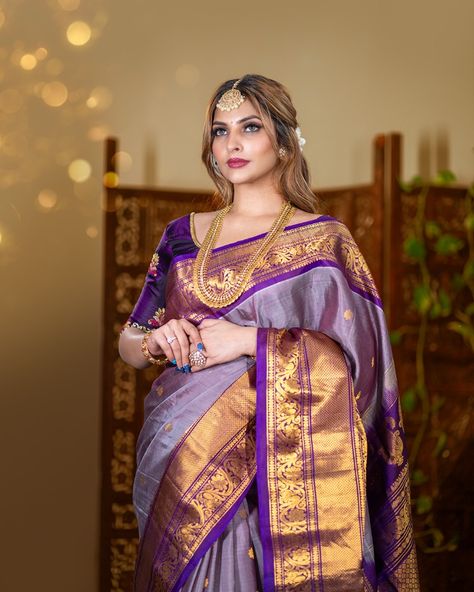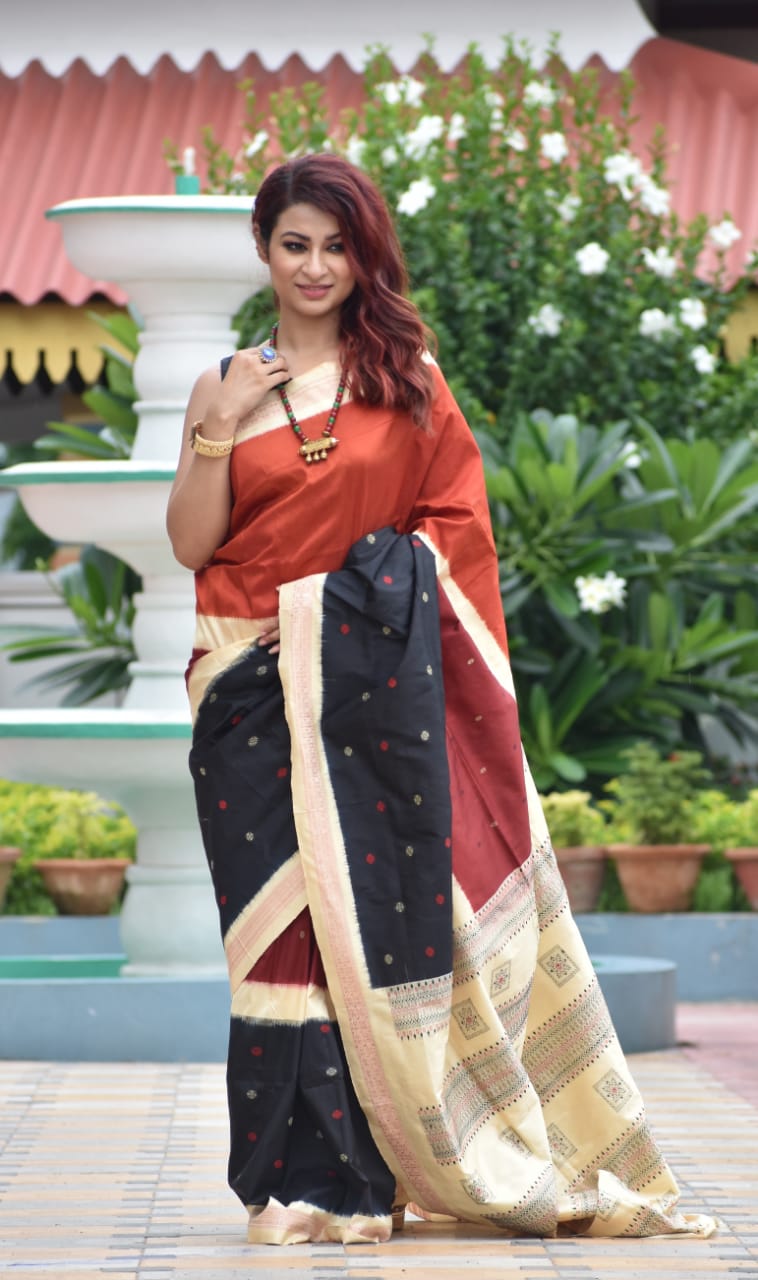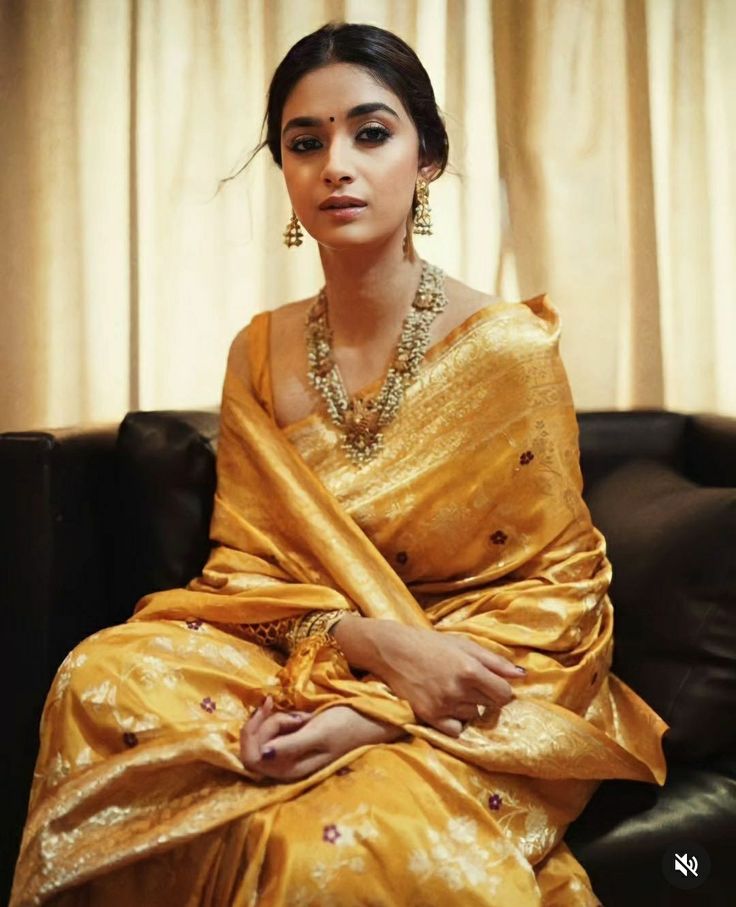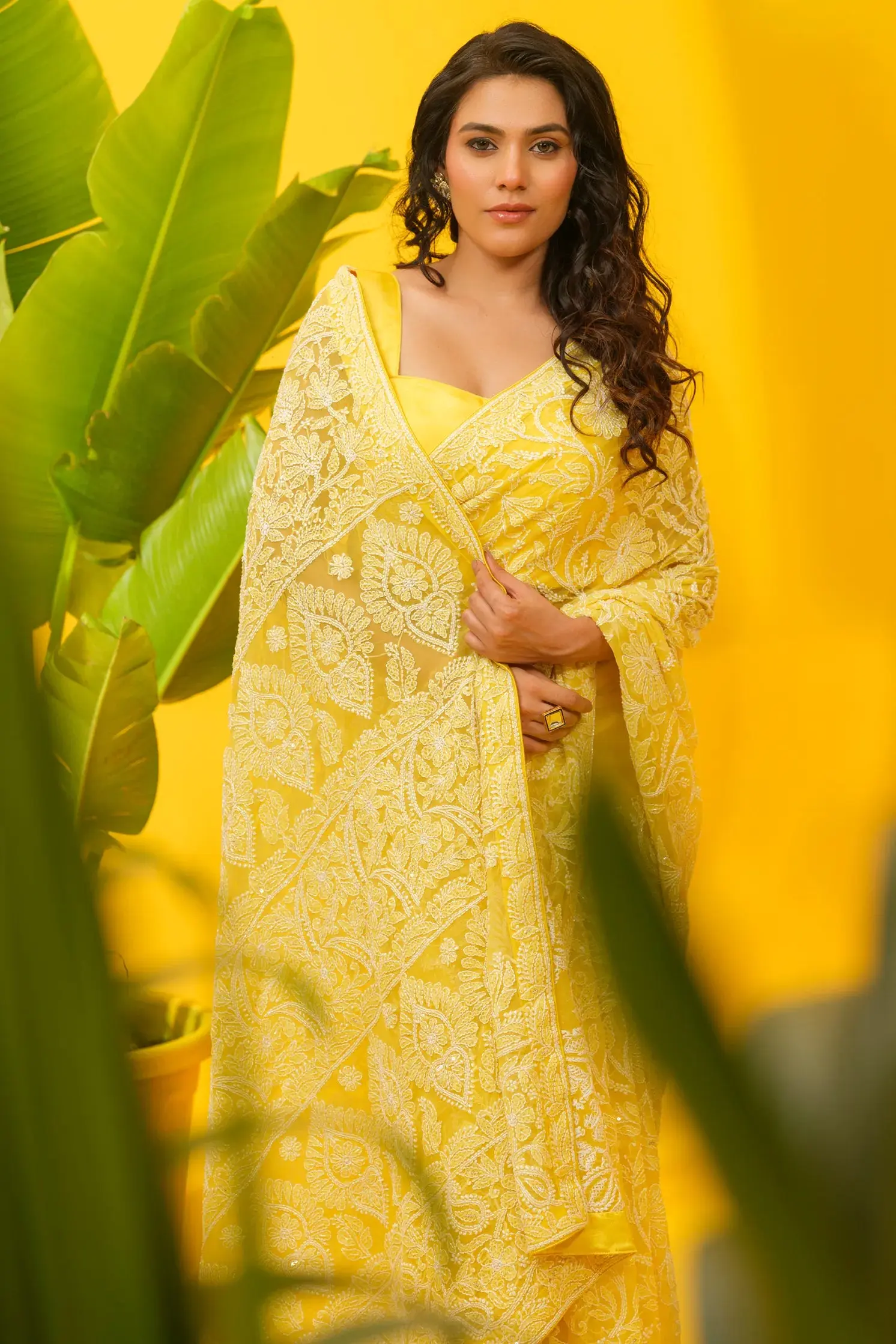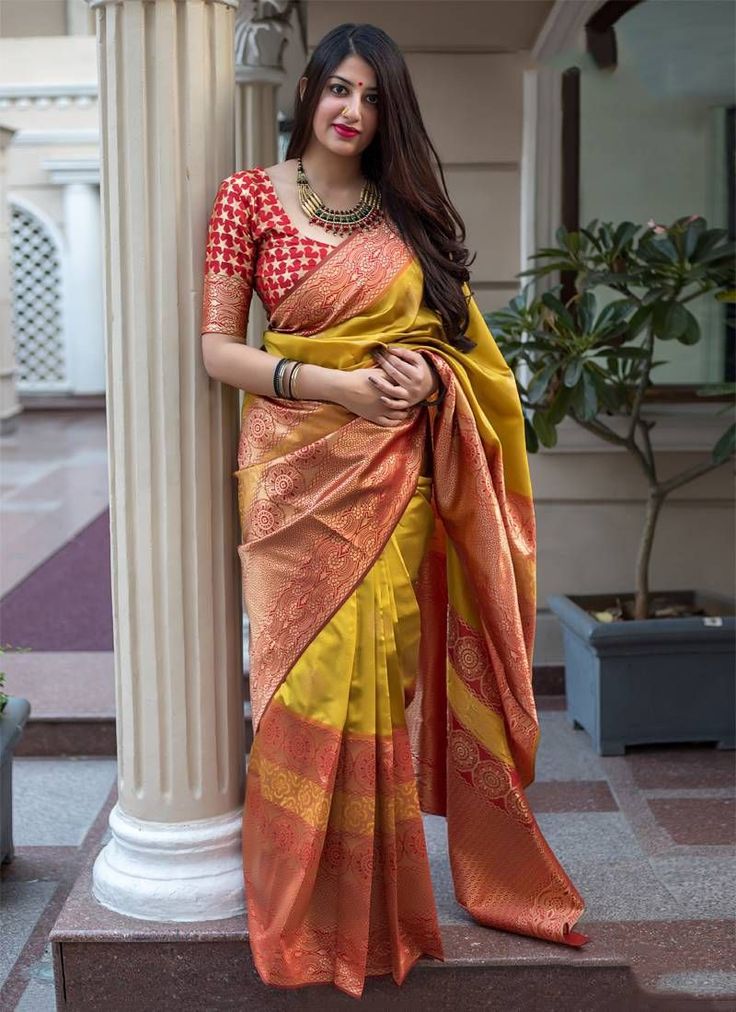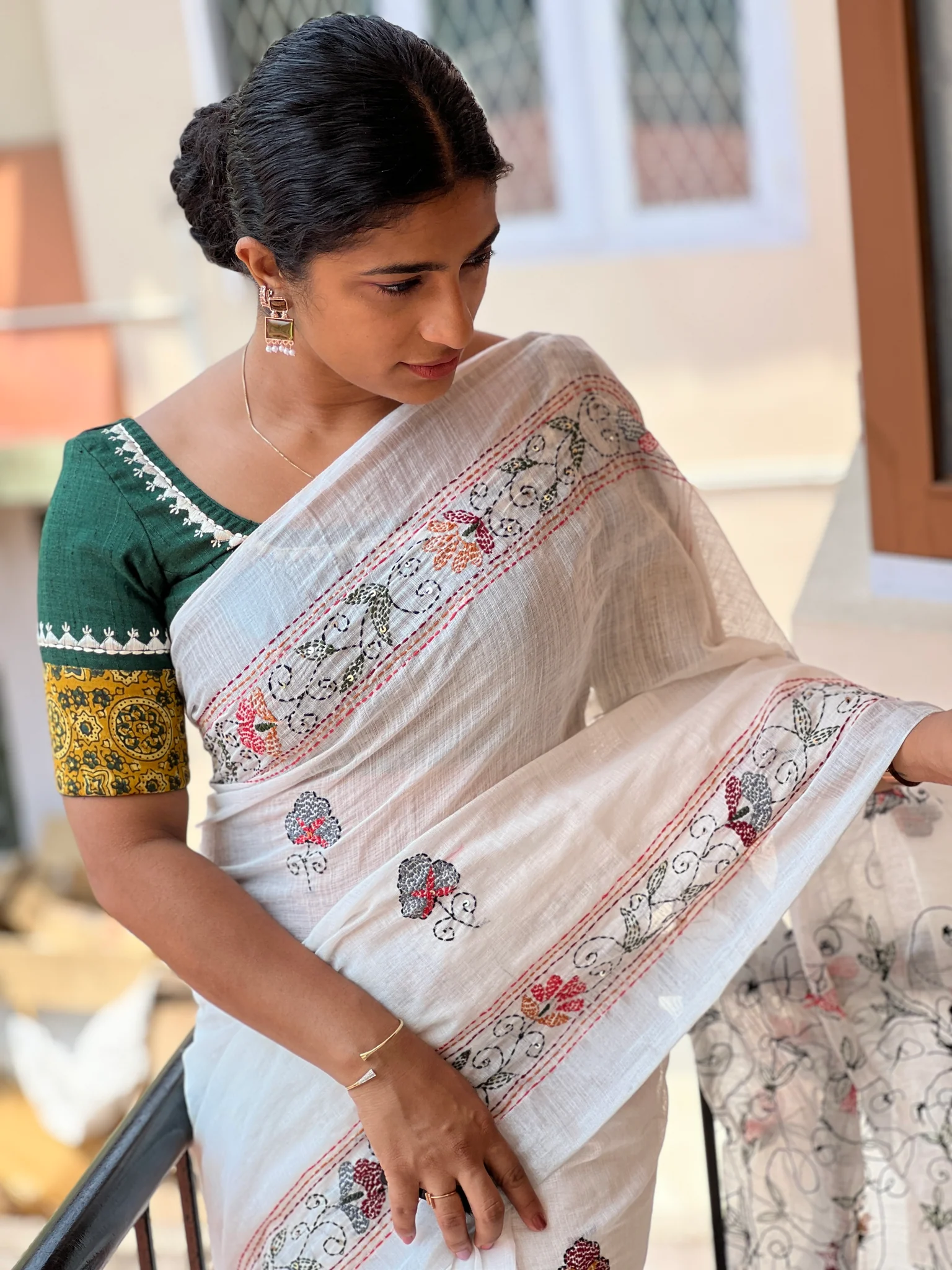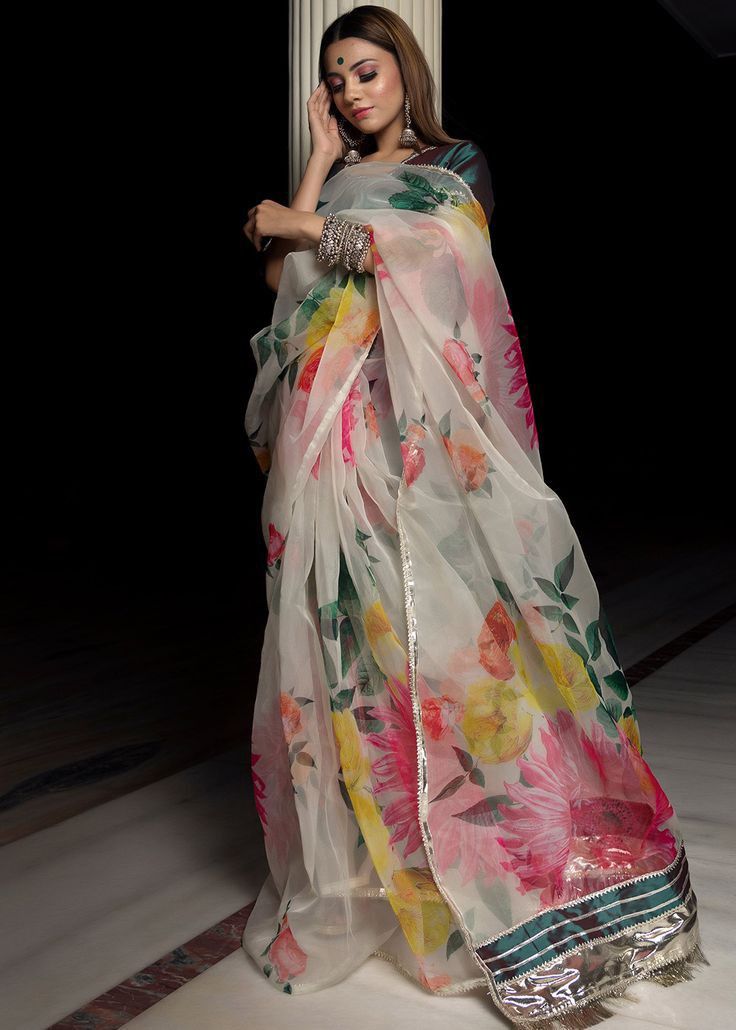India is home to a diverse range of sarees, each representing the rich cultural heritage of different states. From luxurious silk sarees to lightweight cotton drapes, every saree has its own unique fabric, weaving technique, and design. Popular sarees include Banarasi, Kanjivaram, Chanderi, Patola, Bandhani, Tussar Silk, Kota Doria, Paithani, and more. Each saree is crafted with intricate patterns, vibrant colors, and traditional motifs, making them suitable for various occasions.
Uses of Different Types of Sarees
Sarees are versatile and can be worn for various occasions, including:
-
Weddings & Festive Events – Banarasi, Kanjivaram, and Paithani sarees are ideal for grand celebrations.
-
Casual & Daily Wear – Cotton sarees like Chanderi, Kota Doria, and Maheshwari offer comfort and elegance.
-
Office & Formal Wear – Tussar silk, Handloom, and Linen sarees provide a professional yet stylish look.
-
Party & Modern Look – Organza, Georgette, and Designer sarees add a contemporary touch.
-
Traditional & Cultural Occasions – Bandhani, Baluchari, and Pochampally sarees reflect cultural roots.
Benefits of Wearing Indian Sarees
-
Elegance & Grace – Sarees enhance a woman’s beauty with their timeless charm.
-
Comfort & Versatility – Available in different fabrics like silk, cotton, and chiffon to suit all seasons.
-
Cultural Significance – Each saree represents the tradition and craftsmanship of its region.
-
Customization & Styling – Can be draped in various ways to create different looks.
-
Eco-Friendly Choices – Many handloom and organic sarees support sustainable fashion.
Here’s a look at the most popular types of sarees found across India.
Banarasi Saree
Banarasi sarees, originating from Varanasi, are known for their rich silk fabric, intricate zari work, and Mughal-inspired designs. These sarees are a must-have for weddings and festive occasions. The heavy embroidery and fine craftsmanship make them a timeless classic.
Kanjivaram Saree
Kanjivaram sarees from Tamil Nadu are made of pure silk with wide, contrasting borders and traditional motifs. These sarees are famous for their durability, vibrant colors, and gold-threaded patterns, making them a bridal favorite.
Chanderi Saree
Hailing from Madhya Pradesh, Chanderi sarees are lightweight and known for their glossy texture. They come in silk, cotton, and silk-cotton blends with delicate floral and peacock motifs, perfect for summer weddings and casual events.
Bandhani Saree
Bandhani sarees from Gujarat and Rajasthan feature tie-dye patterns created by tightly tying the fabric before dyeing. They are colorful, breathable, and perfect for festivals like Navratri.
Patola Saree
A double-ikat weave from Gujarat, Patola sarees are handcrafted and highly expensive due to their complex dyeing and weaving process. These sarees symbolize royalty and are passed down as heirlooms.
Paithani Saree
Maharashtra’s pride, Paithani sarees, are crafted with rich silk and gold zari work. They feature nature-inspired motifs like parrots, peacocks, and lotuses, making them a preferred choice for brides.
Tussar Silk Saree
Tussar silk sarees are made from wild silk and have a natural golden sheen. Produced mainly in Bihar and Jharkhand, these sarees are lightweight and breathable, making them ideal for formal wear.
Kota Doria Saree
Kota Doria sarees from Rajasthan are made of lightweight cotton and silk blends, featuring a unique checkered pattern. They are comfortable for daily wear and summer outings.
Maheshwari Saree
Maheshwari sarees from Madhya Pradesh are known for their geometric patterns, zari borders, and reversible designs. These sarees are a blend of silk and cotton, making them elegant yet comfortable.
Pochampally Ikat Saree
Pochampally sarees from Telangana are woven using an intricate Ikat technique, where threads are dyed before weaving. These sarees are colorful, vibrant, and have geometric patterns.
Kerala Kasavu Saree
A traditional saree from Kerala, the Kasavu saree is off-white with a golden border, symbolizing elegance. It is mainly worn during Onam and weddings, paired with gold jewellery.
Baluchari Saree
Baluchari sarees from West Bengal are famous for their mythological motifs, which are woven in silk. These sarees tell stories through their intricate designs and are worn on special occasions.
Muga Silk Saree
Muga silk sarees from Assam are rare and expensive due to their golden-hued silk. They are extremely durable and get shinier with age, making them a luxurious choice.
Gadwal Saree
Gadwal sarees from Telangana are famous for their lightweight cotton body and silk pallu with intricate zari work. They are a great option for festive and formal wear.
Bomkai Saree
Bomkai sarees from Odisha are a mix of embroidery and Ikat weaving. They are often adorned with fish and temple motifs, making them perfect for religious and cultural events.
Uppada Saree
Uppada sarees from Andhra Pradesh are known for their soft texture and lightweight feel. They have beautiful zari work and are suitable for grand occasions.
Chikankari Saree
Chikankari sarees from Lucknow are handcrafted with intricate thread embroidery. Made on fabrics like georgette and chiffon, they are a blend of sophistication and comfort.
Venkatagiri Saree
Venkatagiri sarees from Andhra Pradesh are soft, lightweight, and woven with fine cotton and silk. They are ideal for summer and come in pastel shades with gold or silver zari.
Kantha Stitch Saree
Kantha sarees from West Bengal feature beautiful hand-embroidered designs inspired by nature. These sarees have a rustic charm and are often worn for casual and semi-formal occasions.
Organza Saree
Organza sarees are sheer, lightweight, and known for their delicate floral prints and embroidery. These sarees offer a graceful look, perfect for parties and modern fashion lovers.
Conclusion
India’s saree heritage is diverse and stunning, offering a perfect saree for every occasion. Whether you prefer heavy silk weaves or light cotton drapes, there’s a saree for every style. Explore these timeless weaves and add a touch of tradition to your wardrobe!
Let me know if you need more details or styling tips!


